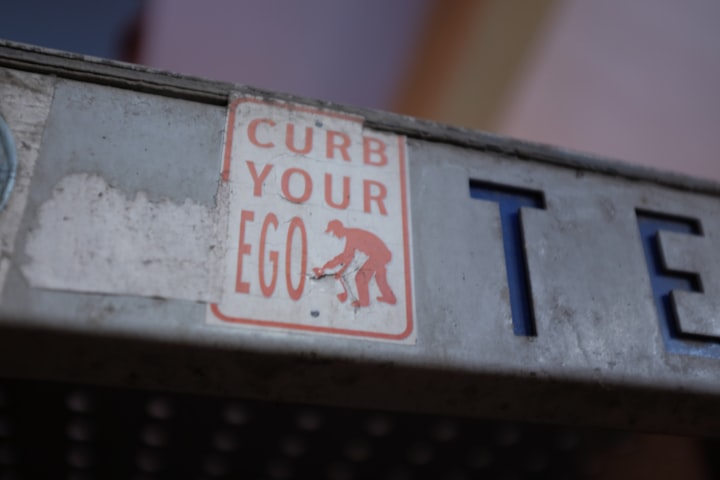
The term "ego" has multiple meanings and interpretations depending on the context in which it is used. Here are a few common definitions:
Psychological definition: In psychology, the ego is one of the three main components of Sigmund Freud's structural model of the mind. According to Freud, the ego represents the rational and realistic part of the mind that mediates between the unconscious, instinct-driven id, and the moralistic superego. It deals with the demands of reality and operates on the reality principle, seeking to balance the desires of the id with the constraints of the external world.
Philosophical definition: In philosophy, "ego" can refer to the self or the individual consciousness of a person. It is often used in contrast to the "non-ego" or the external world beyond one's consciousness. Philosophers like René Descartes famously coined the phrase "Cogito, ergo sum" ("I think, therefore I am"), which emphasizes the existence of the thinking self or ego as the fundamental starting point for knowledge.
Common usage: In everyday language, "ego" is often used to describe a person's sense of self-importance, self-esteem, or self-image. When someone is said to have a "big ego," it means they have an inflated sense of their own importance and may display arrogance or a need for constant validation.

REMOVING EGO!
Removing or reducing one's ego can be a challenging and ongoing process, as it is deeply ingrained in our psychological and social conditioning. However, here are a few approaches that may help:
Self-awareness: Developing self-awareness is crucial in recognizing and understanding your ego. Pay attention to your thoughts, emotions, and behaviors, and observe how they may be driven by your ego. By becoming aware of your ego-driven patterns, you can start to detach yourself from them and make conscious choices instead.
Practice humility: Cultivating humility can help counteract the ego's tendency towards self-importance. Recognize that no one is perfect, and we all have strengths and weaknesses. Embrace a mindset of learning and growth, valuing the perspectives and contributions of others, and acknowledging that you don't have all the answers.
Let go of attachments: Ego often thrives on attachment to outcomes, possessions, and identities. Practice detachment and let go of excessive attachments to external things or labels. This can help you develop a sense of inner stability and reduce the ego's need for external validation.
Foster empathy and compassion: Ego tends to focus on self-interest and self-centeredness. By consciously cultivating empathy and compassion towards others, you can shift your focus away from yourself and develop a greater sense of connectedness and understanding. This can help diminish the ego's dominance in your thoughts and actions.
Mindfulness and meditation: Regular mindfulness and meditation practices can help you observe your thoughts and emotions without judgment, creating space for self-reflection and reducing the ego's influence. These practices can promote a sense of inner peace and detachment from ego-driven patterns.
Seek feedback and listen openly: Be open to receiving feedback from others and genuinely listen to their perspectives. Practice active listening and consider different viewpoints without immediately defending your own. This can help you gain insights, challenge your ego's assumptions, and foster personal growth.
Remember, reducing ego is a lifelong process, and it's normal to experience setbacks. Be patient and compassionate with yourself as you navigate this journey of self-discovery and personal development.

TITLE:
The title "ego" can refer to different concepts depending on the context. It can be used to describe the psychological construct in Freudian theory, the philosophical notion of self, or the common understanding of one's self-importance or self-image.
About the Creator
Mr.wajid
A student, who loves nature and has a keen sense for short stories.
* fiction writing






Comments
There are no comments for this story
Be the first to respond and start the conversation.